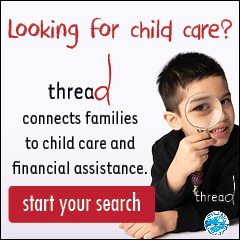Before the Baby
Planning for Your Pregnancy
By Christa Melnyk Hines

Not everyone gets the benefit of planning for pregnancy. But if you can plan, it can make a big difference in the health and well-being of both you and your future baby.
“The healthier you are going into pregnancy, the healthier your pregnancy is going to be,” says Dr. Sara Talken, OB/GYN.
Your Preconception Appointment
• Bring a list of your questions/concerns and current medications
• Be transparent about your lifestyle and past/current health issues (including STDs)
• Ask when/how to stop using birth control
• Include your partner (his health history can affect your pregnancy too)
Schedule a Preconception Appointment
As soon as you begin thinking about starting a family, schedule a preconception appointment with your physician. Discuss your lifestyle and chronic health conditions like high blood pressure, diabetes, autoimmune disease and mental health issues. Many health issues, if not carefully managed, can complicate a pregnancy.
Take a Prenatal Vitamin
Ideally, six months prior to conception, start taking a prenatal vitamin, containing at least 400 mcg, available over-the-counter or with a prescription. A prenatal vitamin helps to prevent spina bifida and anencephaly, which are neural tube defects occurring in the first four weeks of pregnancy-usually before a woman even realizes she’s pregnant.
According to the CDC, if the neural tube (which later becomes the baby’s spinal cord, spine, brain and skull), doesn’t close properly, the developing brain and spinal cord is exposed to amniotic fluid. Spina bifida causes paralysis, hydrocephalus and learning disabilities. Anencephaly is fatal to an infant, often resulting in miscarriage or death soon after birth.
“Studies also show that if you take a prenatal vitamin at least three months before pregnancy, you can reduce your risk of preterm delivery and promote healthier outcomes,” says perinatologist Devika Maulik, M.D.
Attain a Healthy Weight
Weight can affect your ability to conceive. According to WomensHealth.gov, women who are underweight may have irregular menstrual cycles, and their bodies may stop producing estrogen. Obesity can make it harder to get pregnant too.
“If you’re trying to get pregnant or thinking about getting pregnant, fertility greatly increases with just a five percent weight loss,” Sara says.
Being overweight can also increase the risk for pregnancy complications like preeclampsia, gestational diabetes and preterm delivery. Ask your doctor for recommendations about how to achieve a healthy weight.
Eat from the Rainbow
Get into the habit of integrating more wholesome foods into your diet. Keep meals well-rounded with healthy carbs, lean proteins and a variety of colorful fruits and vegetables. A fish oil supplement could also help prevent preterm birth, Devika says.
Avoid restrictive diets like Keto or other low carb diets, especially while pregnant.
“A baby that is deprived of carbohydrates, which are needed for adequate development, can actually grow smaller and not in a healthy way,” Devika says.
Consider Genetic Testing
You and your partner may also wish to seek genetic counseling.
“If anything raises a red flag, then we can do genetic testing on the parents before they even conceive to see if anything that they’re concerned about is actually an issue,” Sara says.
A blood draw can determine if either of you are carriers for cystic fibrosis, spinal muscular atrophy or fragile X disorders.
Of a Certain Age?
While it may not sound flattering, if you’ll deliver your baby in your mid-30s or older, you’re considered “advanced maternal age.” You may wish to ask for more extensive genetic testing prior to pregnancy and consult with a perinatologist during pregnancy for more detailed anatomy screening ultrasounds.
“We now have an amazing non-invasive prenatal test (NIPT), which is a simple blood draw taken as early as 10 to 11 weeks. It screens fetal DNA for trisomy 13, 18, 21 (Down syndrome) and also includes X’s and Y’s to determine gender if desired,” says Dr. Sharla Shipman, OB/GYN.
While these tests won’t change the outcome of any health issues or developmental delays, they can help you plan ahead.
“It is often a great relief for higher-risk patients when they are negative. For an abnormal result, we can get started early pairing a family with a good specialty doctor and support system for their baby’s challenges,” Sharla says.
Avoid Exposure to Toxins
If you smoke, vape or abuse substances of any kind, now is the time to quit. As much as possible, avoid spending time in environments where you are exposed to second-hand smoke or other dangerous fumes.
If you live in an older neighborhood or home, ask your doctor for a blood test to check the levels of lead in your system.
“Lead can contribute to a lot of perinatal complications such as preeclampsia, which is like a hypertensive disorder in pregnancy,” Devika says.
Prioritize Self-Care
Strained relationships, demanding careers and exhausting lifestyles could make it harder to get pregnant and can interfere with a relaxed, healthy pregnancy and postpartum period. Manage stress through regular exercise and time with friends. If you continue to struggle, seek guidance from your physician, a licensed counselor or other trusted resources.
“When we empower ourselves to make good choices, we start to see ourselves as strong and become less willing to allow stressful situations and people in our lives,” Sharla says. “I believe that ‘empowerment decision’ is a natural transition to becoming parents because we begin to see ourselves as moms and protectors.”









